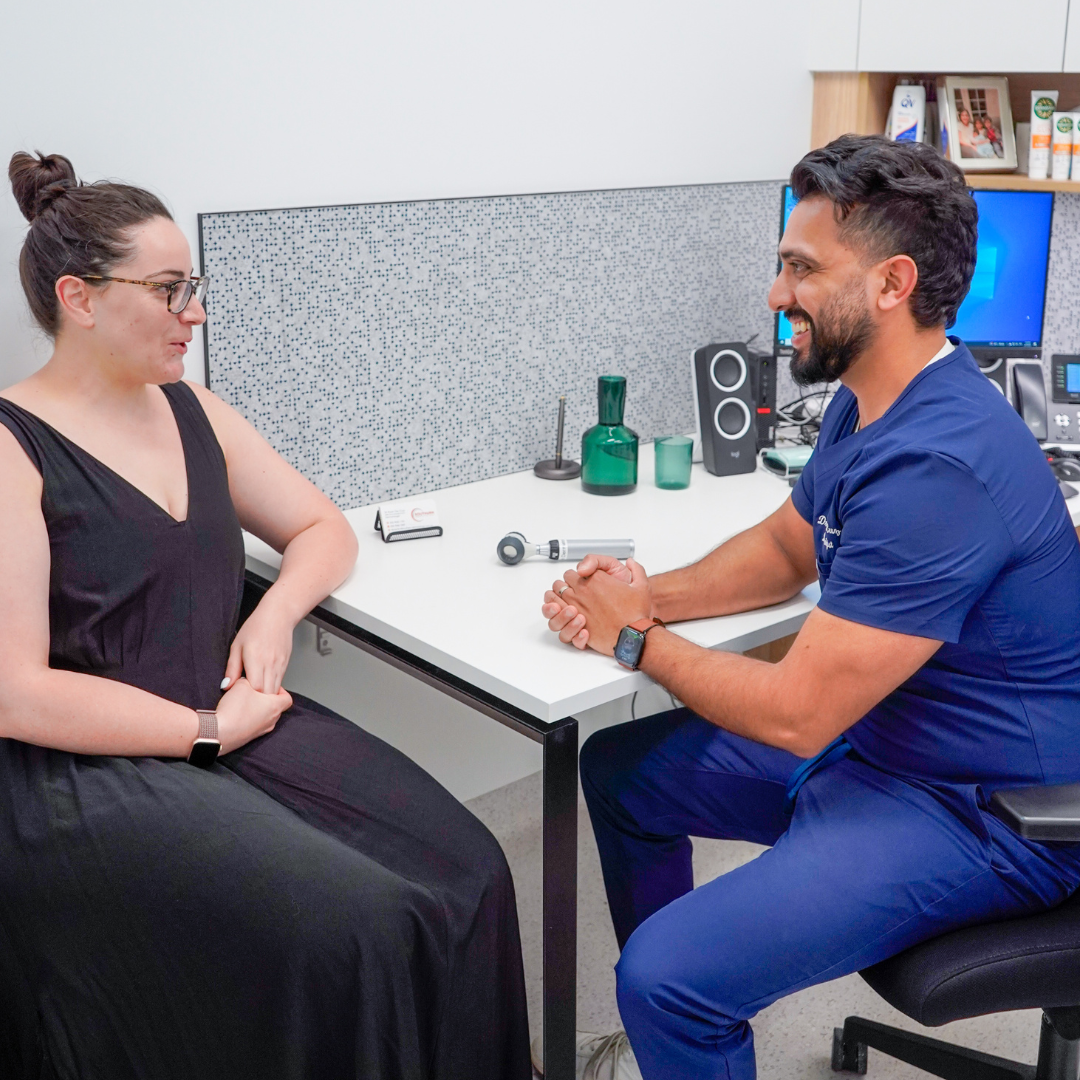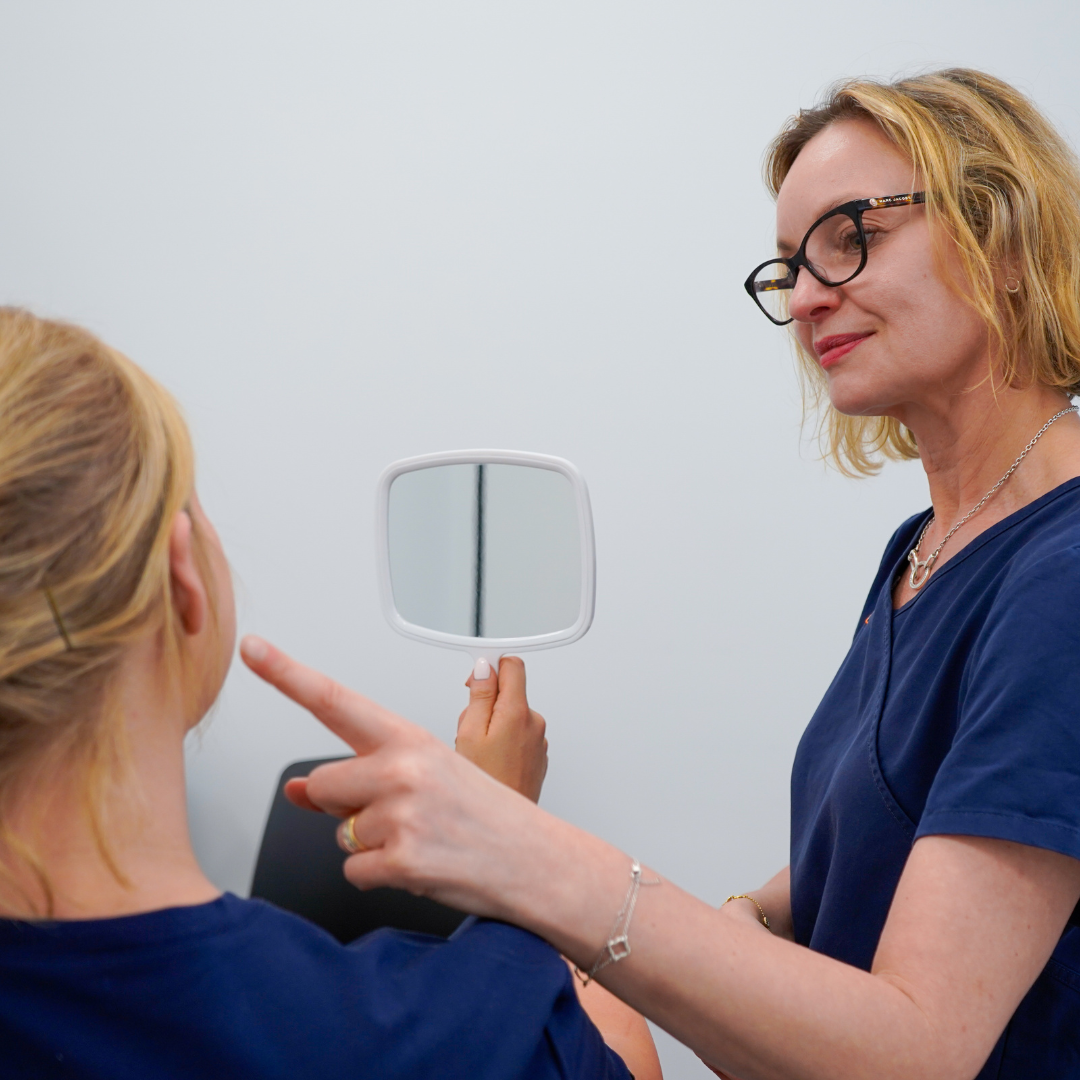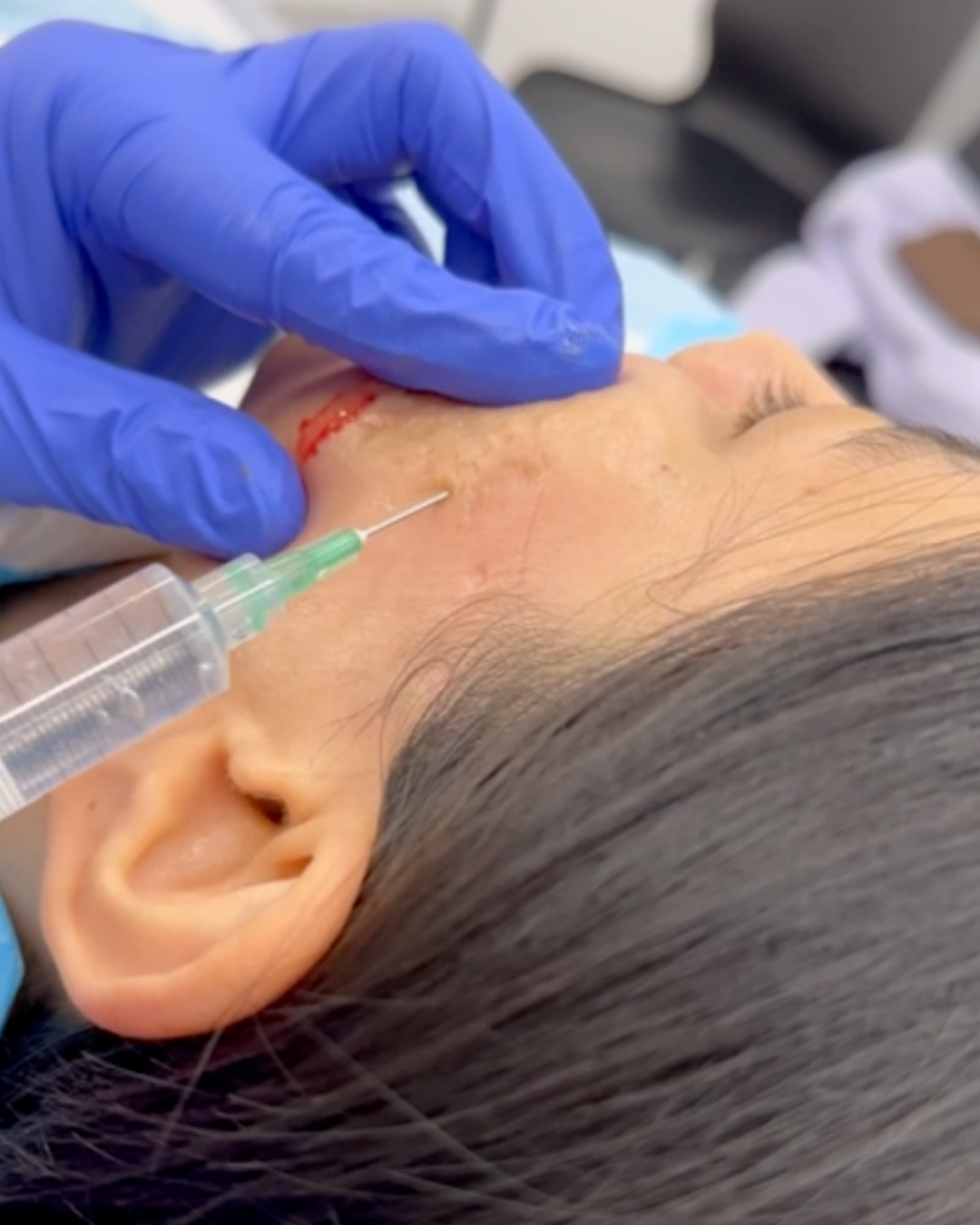
Combat acne with evidence-based, personalised solutions designed to prevent breakouts and minimise scarring.
Acne is a chronic inflammatory skin condition that occurs when oil glands (sebaceous glands) produce excess sebum, leading to clogged pores, bacterial overgrowth, and inflammation. It commonly affects the face, chest, back, and shoulders, and varies in severity from mild blackheads to deep, painful cysts that can lead to scarring.
While acne is most often associated with teenagers and hormonal changes, it can persist into adulthood and may be triggered by a combination of genetics, hormones, diet, and lifestyle factors. Without proper treatment, acne can result in persistent breakouts, post-inflammatory pigmentation (PIH), and long-term scarring.
Acne at a glance
✔ Comedonal Acne – Blackheads (open comedones) and whiteheads (closed comedones) caused by clogged pores.
✔ Inflammatory Acne – Red, swollen pimples (papules) and pus-filled spots (pustules) due to bacterial inflammation.
✔ Cystic Acne – Deep, painful cysts that form under the skin and have a high risk of scarring.
✔ Nodular Acne – Hard, painful lumps deep within the skin, often resistant to topical treatments.
✔ Hormonal Acne – Flare-ups influenced by hormonal changes, commonly affecting the jawline and lower face.
✔ Fungal Acne (Malassezia Folliculitis) – Pimple-like breakouts caused by an overgrowth of yeast rather than bacteria.
✔ Excess Sebum (Oil) Production – Overactive sebaceous glands lead to clogged pores.
✔ Hormonal Changes – Increased androgen levels (puberty, pregnancy, menstrual cycles, PCOS) can worsen breakouts.
✔ Bacterial Overgrowth (Cutibacterium acnes) – Bacteria trapped in pores contribute to inflammation and pus formation.
✔ Clogged Pores (Hyperkeratinisation) – Excess dead skin cells block follicles, trapping oil and bacteria.
✔ Diet & Lifestyle – High-glycaemic foods, dairy, and stress may aggravate acne.
✔ Genetics – A family history of acne increases susceptibility.
✔ Skincare & Cosmetic Products – Comedogenic products can clog pores and trigger breakouts.
✔ Environmental Factors – Humidity, pollution, and excessive sweating can worsen acne.
✔ Topical Treatments – Prescription retinoids, benzoyl peroxide, salicylic acid, and antibiotic creams.
✔ Oral Medications – Antibiotics, oral contraceptives (for hormonal acne), and oral retinoids (isotretinoin).
✔ Chemical Peels – Exfoliates dead skin cells and clears congestion.
✔ Laser & Light Therapy – Kills acne-causing bacteria and reduces inflammation.
✔ Professional Extractions – Clears clogged pores and prevents future breakouts.
✔ Dietary & Lifestyle Modifications – Optimising skincare, diet, and stress management.
Treatments We offer for Acne Vulgaris
Frequently Asked Questions
The best treatment depends on your acne type, severity, and skin type. Mild acne can be treated with topical retinoids and salicylic acid, while moderate to severe acne may require oral medications, laser therapy, or chemical peels.
Acne can be effectively controlled with the right treatment, but it may require ongoing maintenance to prevent recurrence. Early intervention is key to avoiding long-term scarring.
Certain foods, especially high-glycaemic diets and dairy, have been linked to increased breakouts. A balanced diet rich in antioxidants and omega-3s may help reduce inflammation.
Hormonal acne flares up around the jawline and chin, often during menstruation or due to PCOS. Treatments include oral contraceptives, spironolactone, and topical retinoids.
Avoid comedogenic (pore-clogging) products, heavy oils, and harsh scrubs. Use non-comedogenic, fragrance-free products designed for acne-prone skin.
Yes, genetics play a significant role in acne. If your parents had acne, you're more likely to experience breakouts.
Yes, stress increases cortisol levels, which can trigger oil production and lead to breakouts. Stress management techniques like exercise and mindfulness can help.
It depends on the products used. Non-comedogenic, oil-free makeup is best for acne-prone skin. Always remove makeup before bed.
Yes, laser therapy is safe and effective for treating active acne and scarring. AviClear and Laser Genesis are excellent options for reducing breakouts and improving skin texture.
Yes, deep cystic acne can lead to scarring if left untreated. Early treatment and scar-targeted procedures like subcision, CO2 laser, and peels can improve skin texture.
Results vary, but most treatments show improvement within 4–8 weeks. Treatments like AviClear laser and isotretinoin may take a few months for full effects.
Fungal acne (Malassezia folliculitis) is caused by an overgrowth of yeast, often mistaken for regular acne. It is treated with antifungal medications, sulfur washes, and avoiding occlusive skincare.
No, picking or squeezing acne can worsen inflammation, spread bacteria, and lead to scarring. Professional extractions are a safer alternative.
While UV rays can temporarily dry out pimples, they worsen hyperpigmentation and inflammation in the long run. Always use SPF 50+ sunscreen to prevent post-acne marks.
To begin your acne treatment journey, fill out our online consultation form, and our dermatologists will assess your skin concerns and create a tailored treatment plan.






